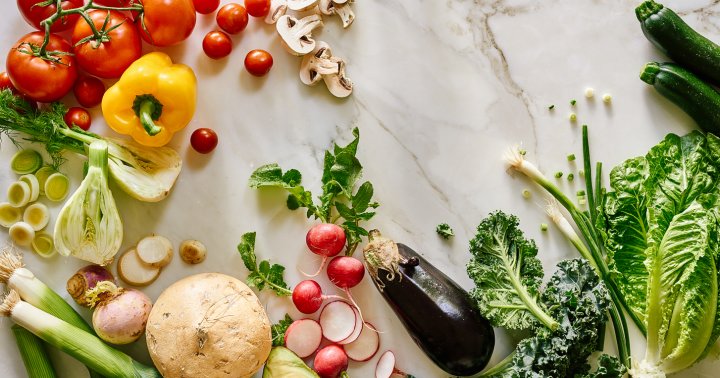
Seasonal Eating
SEASONAL EATING
Don Gordon - Health Transformation & Functional Nutrition Coach
Seasonal food is fresher, tastier, more nutritious and less expensive – plus it’s better for the environment too. Making small changes to what (and when) we eat can generate big health rewards.
In recent years it has become all too easy to take for granted the huge range of food available on our supermarket shelves. We have become used to eating what we like, when we like – regardless of the time of year.
The current social and economic backdrop is making it more challenging for certain types of fresh produce to make it into our stores. The various restrictions fuelled by Brexit and COVID (including serious illness and self-isolation) are placing a huge strain on the food supply chain as we know it, not least because the UK relies heavily on imports, with around 46% of our vegetables and 84% of our fruit being imported by air and road freight from abroad. A shift towards eating more seasonally is one key way to improve sustainability in our diets, while also reducing our carbon footprint.
But the benefits don’t stop there. By choosing foods that are naturally in season, we can support local producers, while saving ourselves money. Seasonally abundant fruit and vegetables are often less expensive than their imported counterparts. Then, of course, there’s the taste. Fresh, locally produced foodstuffs tend to be so much more flavoursome than their out-of-season equivalents that have travelled thousands of miles to reach our shores. I have even started to ‘grow my own’ over the past few years, and the difference in flavour is truly astonishing. Furthermore, home-grown fruit and vegetables tend to have an enhanced nutrient profile. They are also organic, and harvested at their peak, meaning they retain their full vitamin and mineral content.
The warm summer months usually serve up a wonderful array of seasonal vegetables and berries, including strawberries, raspberries and blueberries. Broccoli, celery, courgettes, runner beans, fennel, cucumbers and radishes are just a small selection of my personal favourites. But I’m especially keen to sing the praises of the often overlooked broad bean. Humble but hugely versatile, this vegetable is loaded with vitamins and minerals, and contains no cholesterol or saturated fats.
BROAD BEAN APPEAL
Broad beans are an excellent source of plant-based protein. They also contain the precious energy-supporting B vitamins, including folate, plus a range of key minerals including magnesiusm, iron and potassium. This somewhat unsung hero of the legume family is also a rich source of dietary fibre, which tends to be under-represented in the UK diet.
Did you know, the average recommended fibre intake is 30g per day?
However, only around 60% of us regularly consume that amount. But the health benefits and therapeutic value of broad beans don’t stop there. There’s plenty of evidence to show that legumes such as broad beans can contribute to the prevention and management of a number of chronic health conditions, including type 2 diabetes, high blood pressure, high cholesterol and obesity.

